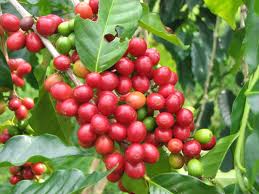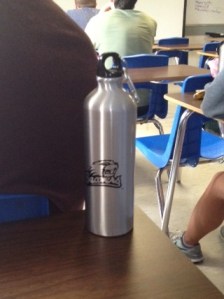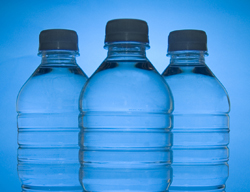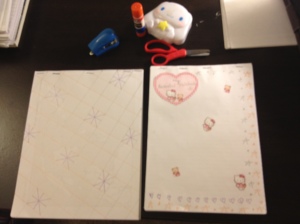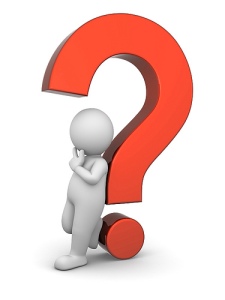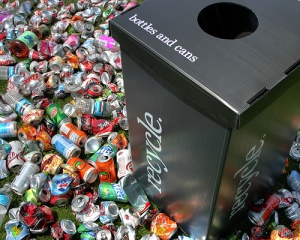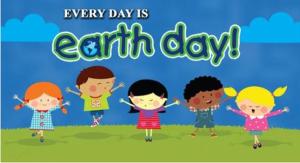So here we are, the end of the term. But just to throw out my opening statement, this is NOT the end of my PSP. Actually, quite the opposite, I think it may only be the beginning. One of the interesting experiences this class has brought to me is having a much better understanding of how inter-related all our human activities are. I already knew that things aren’t necessarily as black-and-white as we try to make them out to be, but it is still fascinating to see how our individual PSP’s all connect at some level or another.
FROM THIS…TO THIS…TAKES THIS
Take my now famous coffee cup for instance. Of course my singular focus was that of not wasting the cup, but then I find out that in the course of making the coffee that goes in my cup 37 gallons of water, (Rebecca L. Goldman, Environment: Science and Policy for Sustainable Development , Vol. 52, Iss. 5, 2010). When you start chasing down every part of your story you soon discover that there are many more topics that relate to my coffee habit. Composting, energy waste and purchasing sustainably grown beans are just a few other easy connections to make in addition to excessive water use.
Wonder where I can find other areas in my life to save water…
I’m not giving up my coffee!
Another consideration that came to me during our journey was this; where does the responsibility for good stewardship start? Or more accurate, who has a bigger influence, the producer/merchant who is selling you the coffee, or you as the consumer? In a study by A. Minton and R. Rose (Journal of Business Research,Volume 40, Issue 1, September 1997, Pages 37–48,The Effects of Environmental Concern on Environmentally Friendly Consumer Behavior: An Exploratory Study)their conclusion is that “when, on the average, consumers‘ attitudes toward the environment are more favorable, their intentions to stop buying from companies that pollute (or buy from companies that do not pollute as much) and to make personal sacrifices to slow down pollution will be stronger and lead to more environmentally friendly consumer behaviors.” In other words, as a concerned consumer, by making our purchasing decisions according to our personal convictions can steer a company into more sustainable business practices.
Vote with your money! Consumer behavior and preferences CAN change how business is done….
It is important that we continue to pay attention to the footprint we are leaving behind on this world. As awareness has increased our overall efforts have definitely improved, for instance, our current municipal waste load going to the landfill is less than it was in 1990, but we’re still only recovering approximately a third of all the trash we generate (http://greenliving.lovetoknow.com/United_States_Recycling_Statistics). Obviously this will not be a sustainable approach as our population continues to grow. My personal goal is at the end of my life to be able to say that I gave more to the world than what I took out of it. Continuing my PSP, sharing with others what that PSP is all about, and encouraging students at OSU to take GEO 300 in future terms are a few of the steps I hope to take towards accomplishing that goal.
One of the things I feel that is very important to remember is that our current problem of consumerism and its associated waste issues are only here because we were too lazy and let things get out of hand. I have not bought one plastic bottle of water and saved about fifty paper cups from going to the landfill without really having to put too much effort into it.
So here is my parting thought; what little thing will YOU do to make yourself more sustainable?
I hope you will join me in accepting the challenge to be more sustainable.
